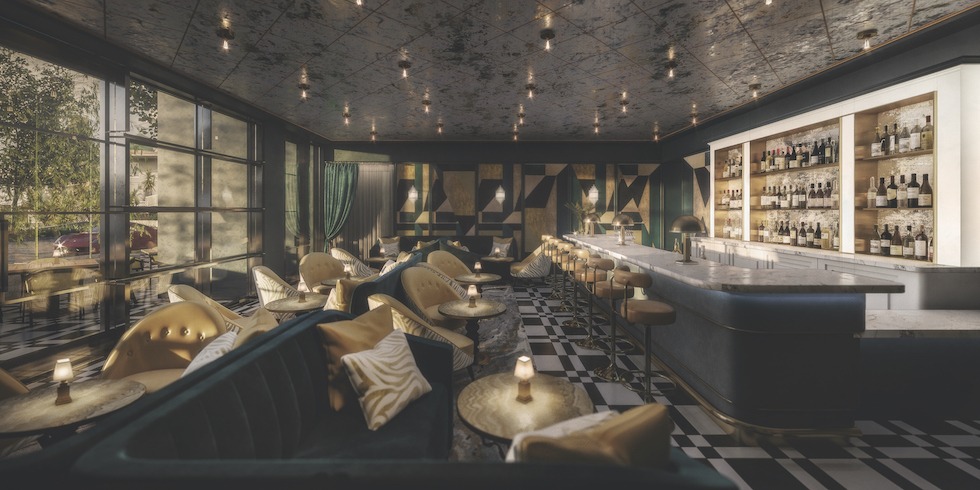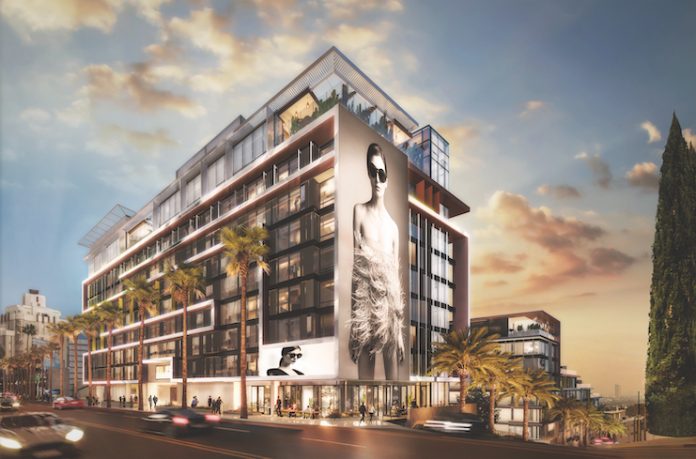This time last year, some of the biggest challenges facing hotel developers were high labor costs, brand fatigue, and market competition. The industry’s circumstances have certainly changed since then, with many hoteliers doing everything in their power to hold on in the face of depressed occupancies, increased costs, and an ever-changing situation. Summer leisure travel gave the industry a bit of a boost, but heading into the fall, corporate and business travel are not projected to bounce back this year or even next.
Throughout the last six months, developers have been put in a strange and difficult position. Do they continue with projects that were already in process? Do they pursue new projects? Where should they be investing their capital when there is so much uncertainty in the market?
There is no easy answer, and economic volatility brought on by COVID-19 gives more weight to every decision. Hoteliers are now in a position where they are rewriting the playbook as new challenges present themselves.
Though it feels like everyone is playing the game on “hard mode,” the pandemic can’t last forever, and even as it continues, hotels are still under development—Lodging Econometrics recently released a report showing that the global construction pipeline comprises 6,896 projects under-construction, with an all-time high room count of 1,230,572 rooms.
Brent Hardy, director of development for The Hardy Group, a third-party development manager, says that it’s impossible to see the full hotel development picture right now because the crisis isn’t yet over. “We’ll know better in a year or so what effect COVID had on development. Right now, we’re still in it,” he says.
But what effect has it had so far? And what can hoteliers expect over the next few months and years?
It Was There, and Then It Wasn’t
Hardy notes that the industry was in a really good place at the beginning of 2020. “It seems like forever ago, but the consensus was that things were good, the fundamentals were strong, and the economy was doing well. There were even people questioning if it was too good,” he says. “Everyone wanted to talk about the end of the cycle, but there was no indication that it was happening anytime soon. And then COVID happened and all of that changed drastically in the period of a week.”
“We’ll know better in a year or so what effect COVID had on development. Right now, we’re still in it.”
Brent Hardy, Director of Development, The Hardy Group
Since March, hoteliers have been living in the moment and doing what they can to get through an uncertain and unstable time. Mitul Patel, managing principal and chief operating officer of Peachtree Hotel Group, which had several properties in development when COVID hit, says that perhaps 90 percent of his time is spent dealing with crises in the moment, rather than planning for the future. “There is no future without being present right now,” he explains. Patel’s day-to-day work is now focused on mitigating the effects of the pandemic on development projects. That includes constant communication with Peachtree’s lenders, as well as working at a property level to implement cost controls. Patel adds that Peachtree Hotel Group is not trying to do any new deals during a pandemic. “We are only developing deals that are capitalized with debt and equity.”
Still Going, Despite the Challenges
There were a lot of projects under construction when the pandemic began, and many hoteliers are still forging ahead on those. When LODGING spoke to Patel in August, Peachtree Hotel Group had just broken ground on a property, and expected to break ground on two others over the next few months.“
“There is no future without being present right now.”
Mitul Patel, Managing Principal and COO, Peachtree Hotel Group
Patel’s colleague, Lee Shuman, who is Peachtree Hotel Group’s vice president of construction and design, adds that the company has three hotels under construction and one that may open either later this year or in January 2021. Shuman says that the hotels breaking ground now aren’t necessarily in a bad place. “We’re expecting a year-and-a-half construction period,” he explains. “These hotels may open at the very end of 2021 or the beginning of 2022, which means we’re developing the properties during industry downtime and they’ll be some of the first hotels to open during the recovery period’s upswing.”
Hardy says some of The Hardy Group’s clients decided to keep moving on their development projects because stopping could be riskier than finishing it. “We had some clients who said, ‘We’re just going to keep going, we’re going to be conservative, and we’re not going to make any rash decisions.’”
Hardy does add that many of these decisions were influenced and ultimately determined by cashflow. “These weren’t development-driven decisions; people were making cashflow survival decisions. Was there a way for the business to stay in business at a particular burn rate?”
But, despite these challenges, there are properties that were poised to open this year and still plan to do so. David Hoffman is the general manager of Pendry West Hollywood, which is due to open late this fall. While the pandemic came on quickly, Hoffman says that the construction at the hotel was able to continue as planned. “At the time of the pandemic, the hotel was fully vertical, bars were in place, kitchen equipment was in, guestrooms were being completed, and landscaping had started,” he describes. “The leadership team at the construction site quickly shifted their safety awareness to focus on the virus and processes were put in place that allowed construction to continue through the pandemic in a way that was safe for the teams on the ground, which was our number one priority.”

Hoffman admits that the construction process had to become much more regimented around health and safety protocols and mitigation efforts. At Pendry West Hollywood, all workers, inspectors, guests, and other personnel are required to enter through one entrance, and arrival times to the site are staggered as to allow proper social distancing. COVID declarations are filled out daily, temperature screening is completed on entry, and wrist bands are worn at all times by team members to indicate that they are properly following guidelines. “As the current situation remains fluid and changes daily, we will continue to shift our procedure to assure this safe environment remains,” Hoffman says.
Looking for Opportunities
While few hoteliers are looking to start developing at this point in time, there are compelling opportunities for developers with cash who want to spend it. Currently, there’s a backlog of construction projects—mainly from properties that were under construction but had to pause due to COVID-related restrictions. Eventually though, the industry will work its way through that backlog. “There’s going to be a pricing trough sometime in the future,” Hardy says. “It’s probably going to be in Q4 of this year or Q1 of next, and contractors will be taking pay cuts to keep working. Developers looking to make a deal will never get a better price and I really think that’s going to drive development activity.”
He adds, “Hospitality investors are entrepreneurial and often will take risks that other investors may not take. You’re going to see people looking for deals, being speculative, and acting out of fear of missing out. They’re going to jump in with capital and plow ahead because they got a deal. I really think that we’re going to see a lot of activity next year, to the point where entities like The Hardy Group might be overloaded with projects. It’s going to rebound.”
Hardy also says that owners are in a better position with the brands now than they have been in decades. “If you’re an owner with a deal in your pocket, you have a lot of negotiating power with the brands for a really good deal. If you love a particular brand, but don’t want to implement one of the standards, now is the time to ask for a waiver. Brands are much more open to those sorts of negotiations right now because so few people are developing.”
Will It Ever Be Normal Again?
Most experts agree that the industry has begun to recover, however, few expect that things will go back to “normal” any time soon, if ever. As such, hoteliers are looking for what pandemic-related necessities are going to stick once it’s completely safe to travel once more.
“The American traveler is resilient,” says Patel. “COVID is not going to permanently stop people from traveling to attend gatherings, and I think that once a vaccine or more effective therapeutic options become available, there’s going to be a really big lift. Until that happens, we’re going to be seeing a lot more of what we were seeing over the past few months.”
Hoffman shares Patel’s optimism, adding, “We all know that people will need to travel again for work, family, or vacation. Our only focus in the hospitality industry needs to be how we create experiences for the traveler that are memorable and safe for what that ‘new normal’ turns out to be.”











